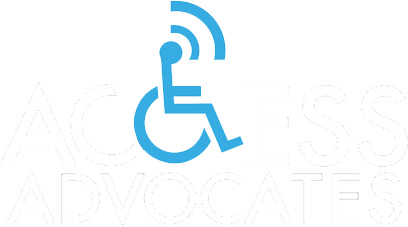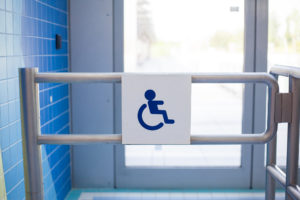With pool season upon us, it is important to know your rights when it comes to ADA accessibility and swimming pools.
2010 Brought New Federal Standards
Federal ADA standards, updated in 2010, require that newly constructed swimming pools and existing swimming pools offer people with disabilities the ability to access swimming lessons or hotel swimming pools that are accessible by everyone else. Recreational facilities covered by the Title III requirement include hotels and motels, health clubs, public country clubs, and recreation centers. Existing swimming pools were exempt from meeting a 2013 compliance deadline if meeting the requirements wasn’t “readily achievable” or involved significant expense or difficulty.
Entry Into the Water
Primary sources for entry into the water are sloped entrances or pool lifts. The pool lift must be one that a person with a disability can operate independently. If there are two entry points into the water, two different types of entry assistance are recommended and strongly advised.
Secondary sources for entry into the water include transfer walls, transfer systems, or stairs.
Community Swimming Pools
Community pools located within a private residential area where use is exclusive to residents and their guests are not covered by the ADA requirements. One exception, however, is if the pools are available for rent by the public.
Community pools operated by a state or local government entity fall under Title II, which allows for program accessibility.
Wading Pools, Wave Action, Leisure River, and Spas
Water parks and similar recreation facilities often have one point of entry into the water. Pool lifts, transfer systems, or a sloped entry are best.
Everyone can enjoy pool season, even people with a disability, so don’t let barriers hold you back from taking a refreshing dip in the pool! For more information about pool accessibility and compliance, contact us today.

